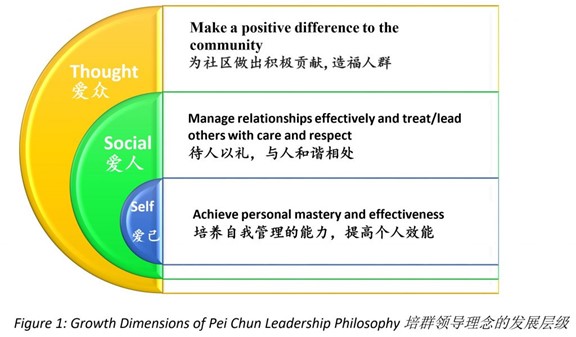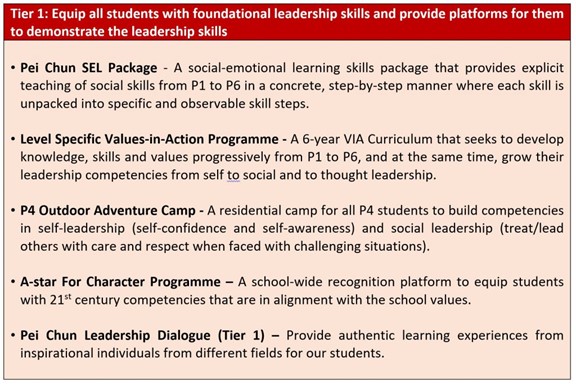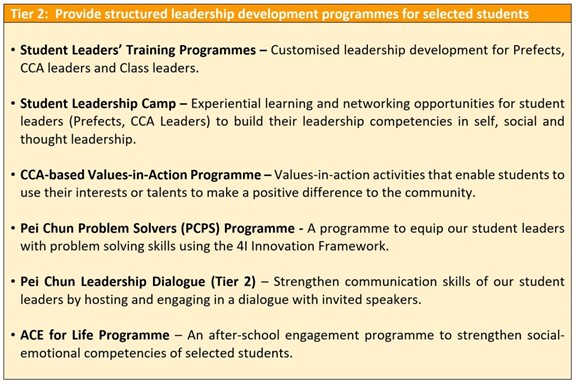终身学习项目 Learning for Life Programme (LLP)
The Pei Chun Leaders Programme is the school’s Learning for Life Programme that forms an integral part of the school’s Character and Citizenship education.
Programme Objectives
This programme is guided by the Pei Chun Leadership Philosophy that drew wisdom from the Confucian classic “Great Learning”. Through this programme, students are instilled a sense of responsibility for themselves and others by demonstrating self-leadership (achieving personal effectiveness), social leadership (leading others with care and respect) and thought leadership (making a positive difference to the community). As part of the Pei Chun Leaders Programme, the school has also embarked on positive education that aims to promote lifelong learning through leveraging growth mindset, mindfulness and positive psychology. This has helped students broaden their perspective of learning as a lifelong process.
Pei Chun Leadership Philosophy
Pei Chun Leadership Philosophy is strongly influenced by the Confucian classic “Great Learning” – 修身、齐家、治国、平天下 – Before one could take on the world, one’s own country must be well-governed first. Before one’s own country could be well-governed, one needs to ensure one’s own family is well in order first. Before one’s own family could be in order, one must begin with cultivating one’s virtue from within first. The direct relevance from the virtue of the individual, to the family, to the country and to the world in the “Great Learning” philosophy encapsulates the growth dimensions of the Pei Chun Leadership Philosophy from self to social and to thought leadership (Figure 1). It firmly believes that leadership begins with self. It is only when one can manage self (Self Leadership) that one can manage relationships effectively, treat/lead others with care and respect (Social Leadership), and make a positive difference to the community (Thought Leadership).

Programme Design</r>
The school adopts a two-tiered approach to broaden students’ educational experiences in leadership development. This tiered approach ensures that the needs of the students are met at different levels through core and differentiated programmes.



